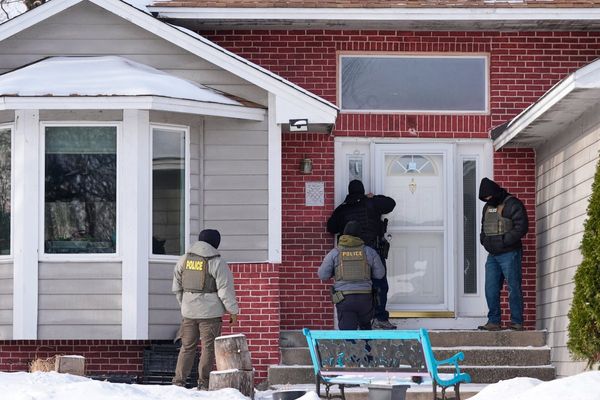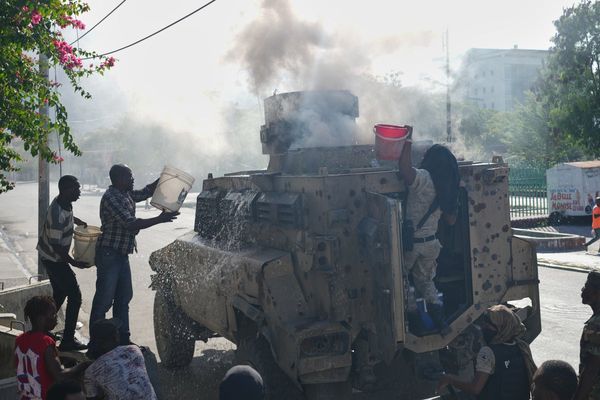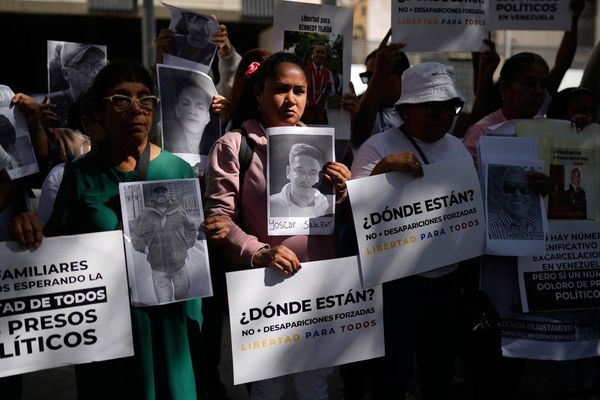In the hills of the southern West Bank, a Swedish cooking pot has become a symbol of trust, resilience and forgotten solidarity. Half a century after it was first distributed as emergency aid, the cooking pots still gleam in the kitchens of Beit Awwa – reminding villagers of a time when Sweden stood by them in the aftermath of war.
Today, that legacy stands in stark contrast to Sweden’s current policy: a sharp reduction in aid to Palestine which has been folded into a regional government strategy for all of the Middle East and north Africa region.
The origins of these pots – and the trust they symbolise – were uncovered through research into the history of Swedish civil society organisations in Palestine. In the aftermath of the six-day war in 1967, Beit Awwa was one of several villages destroyed by Israeli forces. Villagers lost their homes, belongings and livelihoods.
Beit Awwa was not alone. In the chaotic aftermath of the six-day war, entire Palestinian villages were razed. Few international observers were present to document what happened. Israeli authorities actively tried to prevent outside scrutiny.
One of the few who bore witness was Sister Marie-Thérèse, a French nun from the Companions of Jesus order, who later wrote about the devastation in her diary. Israeli journalist Amos Kenan also reported on the forced expulsions, describing elderly people and mothers with infants wandering with white flags.
By mid-July 1967, John Reddaway, Unrwa’s deputy commissioner-general, estimated that around 16,000 people had been made homeless by the destruction of villages in the West Bank. Altogether, between 200,000 and 250,000 people from the West Bank went into exile.
Just a week after the war ended, on June 10, representatives from the Swedish organisation Individuell Människohjälp (IM), including the then ambassador, Bo Siegbahn, and consul, Arnold Hjertström, visited the ruins of Beit Awwa and the neighbouring village of Beit Marsam. They witnessed the devastation and appealed for help.
Sweden’s foreign ministry did not respond. But IM acted. With funding from the Norwegian Refugee Council and donations from the Swedish public (raising more than kr544,000 (£343,000) in July alone), IM chartered two planes from Malmö.
They delivered blankets, clothing, 100 tons of wheat flour, powdered milk, food supplies, primus stoves, and kitchen utensils — including the now-legendary Skultuna pots, a brand dating back to 1607.
The village elder, or mukhtar, oversaw the distribution, ensuring that aid was shared fairly. One of the men who proudly showed the pots to a visiting development worker decades later turned out to be the mukhtar’s grandson. IM also set up two tent camps and later sent medical supplies, prosthetics, spectacles and wheelchairs.
Cleaning up
Many years after the humanitarian intervention in 1967, Sweden returned to the Beit Awwa area to help resolve a new and complex problem. Swedish representatives were met with goodwill by the villagers, apparently based on the role Sweden had played decades earlier, even though no one was old enough to have their own clear memories of what had taken place in 1967.
During the 2010s, the Swedish consulate-general in Jerusalem identified a growing environmental crisis in the occupied Palestinian territory. In the villages near Hebron, many families had turned to informal recycling of Israeli electronic waste, a hazardous livelihood born out of economic necessity and political exclusion.
After the second intifada, when Palestinian workers were largely barred from entering Israel, some turned to old contacts among Israeli junk dealers. They began importing discarded electronics, burning them to extract copper and other metals, and selling the materials back through informal networks.
The environmental cost was devastating. Thick black smoke from burning cables choked the air and toxic runoff seeped into the soil and groundwater. The intricacies of the dangerous trade were brought to light by a group of researcher led by Yaakov Garb at Ben-Gurion University. They were able to link the burn sites to rising rates of lymphoma and other illnesses among children in the area.
In response to the crisis, researchers and villagers, supported by the Swedish International Development Cooperation Agency (Sida), developed a pilot project in 2015 to transform the informal recycling into a safer, small-scale industry.
The idea was to replace open-air burning with mechanical cable grinding, decontaminate the burn sites by removing toxic soil, and register the recycling operations as formal businesses with the Palestinian Authority. Local municipalities were also tasked with forming monitoring teams to prevent illegal burning.
The pilot project was a success. A significant area was cleaned, and a volunteer force of 60 people was quickly mobilised to enforce the new regulations. On both sides of the green line, the project earned praise – from Palestinian villagers, Israeli neighbours, and local authorities alike. In the villages, it became known as “the Swedish project”.
One cable-grinding machine remains in operation today – but like many well-intentioned initiatives in Palestine, the project eventually ran into political obstacles. Sustaining the success of the pilot project required a degree of formalised collaboration between Israeli and Palestinian authorities, but agreement on the details proved impossible and the structures of occupation left little room for long-term, trust-based governance.
Events since then, including the Israeli government’s declared intention to annex the West Bank and the trauma of October 7 2023 and its violent aftermath, have made any efforts at aid requiring collaboration between Israeli and Palestinian authorities virtually impossible.
Still, Sweden’s name continues to carry weight in Beit Awwa and beyond. The memory of those aluminium pots – still gleaming after half a century of use – speaks to a legacy of solidarity that transcends politics. As a historian and a development worker, we believe this legacy deserves to be remembered, and reconsidered, in light of today’s shifting aid policies.
Perhaps one day, that legacy will form the foundation for a renewed Swedish contribution to just peace and prosperity in the region.
The authors do not work for, consult, own shares in or receive funding from any company or organisation that would benefit from this article, and have disclosed no relevant affiliations beyond their academic appointment.
This article was originally published on The Conversation. Read the original article.







